H2H – Let’s talk IMPACT
Last month, we lifted the lid on CAUSE to understand why you do the things you do. This is such an important first step on your mental fitness journey – congrats, on taking it!
This month, we’ll explore IMPACT. How do these thoughts and feelings we’ve learned lead to issues like anxiety, anger, depression, isolation or addiction etc? How can we begin to tackle these issues?
The how
Let’s consider how these behaviours and responses affect your life today. This isn’t just about the initial impact (making you feel depressed or respond with anxiety for instance) but also how these can hold you back in sometimes less obvious areas of your life?
My impact journey
I had two significant events growing up that defined who I am today. The first was a primary school art lesson to create a clay model when I was seven. I was so excited because I wanted to make an elephant for a Mother’s Day gift. We didn’t have a lot of money growing up and I hadn’t been able to give my mum a present before.
My friend and I volunteered to run an errand but when we returned, excited to report back to the teacher, we were told to stand in the corner. She scolded us that children should be given permission before they spoke and threw our clay models in the bin. I was heartbroken and didn’t understand why I was punished.
What impact did this have on me? I learned not to speak in class and not to ask or answer questions. My teachers thought I either wasn’t interested or academic. In response, I became the student that was good at sports and I believed that I was only good at sports.
The second event was when my high school physics teacher asked me what I wanted to do outside running. I didn’t have an answer at all. He said he’d taught me for four years and knew how good my brain was – why didn’t I use it and surprise myself at what I could do?
When I later faced the possibility of losing my athletic scholarship in America, I didn’t think I was “smart” enough to go to university until I remembered his words. I went for it and now, I’m very proud to be able to help people find their way forward, like I did back then.
What I’ve described is similar to what psychologists call the Pygmalion effect. When someone else’s expectations of you (i.e. you’re not academic) become what you internalise (I’m not smart) and you start behaving from that belief (well I’m just good at sports).
More than a label
You may have been diagnosed or told you’re depressed, anxious or stressed. Before you label yourself, I want you to consider a few things.
Let’s look at anxiety. I know the devastation that chronic anxiety can have and how debilitating it can feel. I’ve seen it in my clients. However, when we label you as a thing (i.e. anxious) you start to identify as that label, operate as being that label and without realising it, live your life from this labelled position. You believe this is who you are. You are anxious – something fixed, not changeable.
As humans, it’s easier to label. We want to understand and assign meaning to why we feel certain ways. That’s why we often start to make reasons for how we feel – it’s because you can’t lose weight, you can’t afford things you want, you’re not confident enough or you don’t deserve it etc. Most of the time, these are not the real reasons or cause of what is making you feel anxious or low or stressed. These feelings are responses you’ve learned from previous situations.
You aren’t a label or a condition. You’re someone who’s learned to respond in an anxious or stressed way to certain situations. A response you learned to cope with or protect yourself from some stage in your life, usually childhood.
Ever wish you would speak up more with a partner but don’t because it’s easier to stay silent? You might think it’s because you want to be a good partner, you’re afraid of losing the relationship or you’ve got no place to speak up. It’s likely you learned a behavioural response earlier that you’re still repeating today.
What’s the impact of this? You’re in a relationship that’s probably making you feel unhappy, unfulfilled and like you can’t do anything about it. This isn’t just confined to your relationships. What else do you run away from, hide from or not speak up about? How does this impact you and how is this holding you back?
Learned Helplessness is when a person experiences a stressful situation or event and repeatedly starts to believe they’re unable to change or control the situation. They stop trying, becoming helpless and hopeless even when opportunities to change are there.
If you’re not aware of what causes you to feel a certain way or aware of the full impact this has on your life, this can lead you to feeling helpless. You probably don’t see the opportunities for change right in front of you – the way to happiness.
Choose change
Work with me – let’s make the connections, see the areas of your life being impacted and understand you have control. You can change your response to the situation – just like I did when I challenged my belief that I wasn’t academic enough and took control of the impact this was having on my life, for the better.
I hate to see amazing people hampered by a belief or label they’ve been given – by others or themselves. I want to give you a different perspective to understand how your learned responses become habits and can lead to you feeling bad or overwhelmed. Don’t reduce yourself to that feeling, that response, that impact. It’s not in control, you are.
The good news? You can do something about it. What if there are opportunities and possibilities to change right there in front of you that you just can’t see? You don’t have to feel this way. Actively start to do something about it – believe you can find your way to happiness. I believe you can!
Over the next few months of our H2H journey, I’ll be giving you the specific tools to enable you to start changing these behaviours and habits. I just need you to choose to use them and commit to change. It won’t be easy or instant but it’ll be worth it.
Are ye in?
Until next time
Keep following us on Facebook, Instagram and Twitter and join us next Wednesday where I’ll be talking all things IMPACT in our next video.
Catch you then, Mary.





